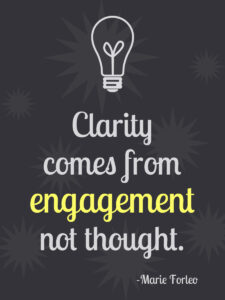How do we have conversations and bring about clarity of ideas when we don’t speak the same language? I’m talking about the language of education reform. It’s too full of codes and triggers.
The general public, the people whose education system we are talking about, can’t possibly be clear about what is really happening to their system. And how can they possibly crack the “code”?
I personally can’t help with deciphering everything but I can help with one item of reform that we should all sincerely try hard to understand – The Elementary and Secondary Education Act (ESEA) of 1965. It won’t be easy. As Harold “Doc” Howe II, the commissioner of education in charge of enacting the law, said,…
“I doubt that anyone could have dreamed up a series of education programs more difficult to administer . . . but ESEA was not designed with that in mind.”
ESEA’s design had one goal in mind — providing equal access to quality educational opportunities. It focused on leveling the playing field. And it was going to accomplish this by first addressing the needs of children from low-income families. The policy stood on the principle that “a rising tide lifts all boats.” When we improve the educational opportunity for the under-privileged, we improve opportunity for others in the process.
The “process” is multifaceted and requires more clarity that a blog can provide.
Please don’t stop trying to understand because of a person’s choice of words. “Turnaround” doesn’t ALWAYS mean the Race to the Top ways, “indicators” or even “assessments” don’t ALWAYS mean standardized tests, and even “always” rarely means “always.” You get my drift.
And remember, teachers have been in the trenches of the education reform wars for far too long. They are —understanably—sensitive to buzzwords.
Right now, the right education battle is the one for clarity. Clarity about education policy gives all children a better shot at being fully educated to the limits of their potential.
When someone pulls your trigger, or you find yourself wondering “what is this person talking about?” – my advice is to slow down. Ask questions and listen to the answers. Isn’t that the very thing we would expect from good students?


Pingback: Changing No Child Left Behind - The Crucial VoiceThe Crucial Voice
Pingback: Accountability of Administration - The Crucial VoiceThe Crucial Voice